For septic system owners, a comprehensive septic system inspection is critical to any real estate transaction, especially in Florida, where regulations and environmental conditions require an inspection before purchase.
Understanding the condition of a home’s septic system can prevent costly surprises, ensure compliance with local health standards, and protect property value for both buyers and sellers.
Having an up-to-date inspection done early can also be a valuable negotiation tool, allowing buyers to make informed decisions and sellers to proactively address any issues that could impact the sale.
ACE Septic & Waste stands out as a leading provider of septic inspections in Tampa, FL, adhering to the highest standards of quality and transparency. Unlike inspections by many other companies, ACE Septic’s process goes beyond surface-level checks, assessing the septic system’s core components, including the tank, drain field, and alarm systems. ACE’s teams of expert technicians are trained to identify issues that others may overlook, providing clients with a comprehensive and honest evaluation.
New 2024 Florida regulations to reduce nitrogen have introduced stricter requirements for septic systems, particularly in sensitive areas. These changes, led by the Florida Department of Environmental Protection (DEP), aim to reduce nitrogen pollution and protect water quality. Homeowners in affected areas may need to upgrade their systems or adhere to new installation guidelines. These upcoming regulations make a professional inspection from a reliable provider like ACE Septic even more important for buyers and sellers alike.
This guide will cover a lot of material, so feel free to use the links here to access specific sections of this guide that may pertain to your specific real estate septic inspection needs.
Do you have questions about your septic system inspection?
Call our office at 813-971-8770 to learn more.
A thorough septic real estate inspection goes beyond a simple check of system components. ACE Septic & Waste uses a detailed, multi-step process to evaluate each critical part of the septic system, ensuring it meets Florida’s Department of Health standards and local regulations.
Our approach provides homeowners with a clear understanding of their system’s current condition, helping to inform new home buyers about any expected repairs or septic system compliance issues.
ACE begins each inspection by uncovering and identifying all major septic system components: the septic tank, dosing tank, high-water alarm, and drain field. Our technicians then address each component’s specific function and look for potential issues with its performance or compliance.
Fluid Level Checks and Pumping:
Technicians start by assessing fluid levels in the tanks and pumping out solids and excess fluids. This step ensures an unobstructed view of the tank interior and prevents solids from accumulating, which can lead to system backups and failure.
Structural Integrity Inspection:
The material of each tank—whether concrete, polyethylene, or fiberglass—requires specialized inspection methods. Concrete tanks undergo a density test to check for brittleness, while polyethylene and fiberglass tanks are visually inspected for cracks, warping, or other structural weaknesses.
Component Testing:
Key components like the pump, float switches, and high-water alarms are carefully examined to ensure they function correctly. This also includes load testing for unoccupied properties to simulate daily water usage and confirm that the drain field can handle expected volumes.
Following the inspection, ACE provides clients with a detailed septic inspection report by the end of the next business day.
This report outlines the system’s current condition, covering everything from structural integrity to performance under wastewater load.
The report also includes recommendations for any necessary repairs or maintenance, ensuring that the system complies with Florida’s health and safety standards and is ready for the demands of property transfer.
ACE Septic’s dedication to quality means we sometimes will fail systems that other companies might pass. For instance:
Brittle Tanks:
Many inspectors may simply look at a tank’s capacity and current functionality, but ACE also conducts density tests on concrete tanks to assess brittleness. If a tank is old, brittle, or showing signs of wear, ACE will flag it, even if it appears functional.
Drainage Issues:
Sometimes, a drain field may function under limited use but struggle with higher volumes. ACE’s load tests simulate normal household water usage, ensuring that the drain field can handle daily demands without failing or backing up.
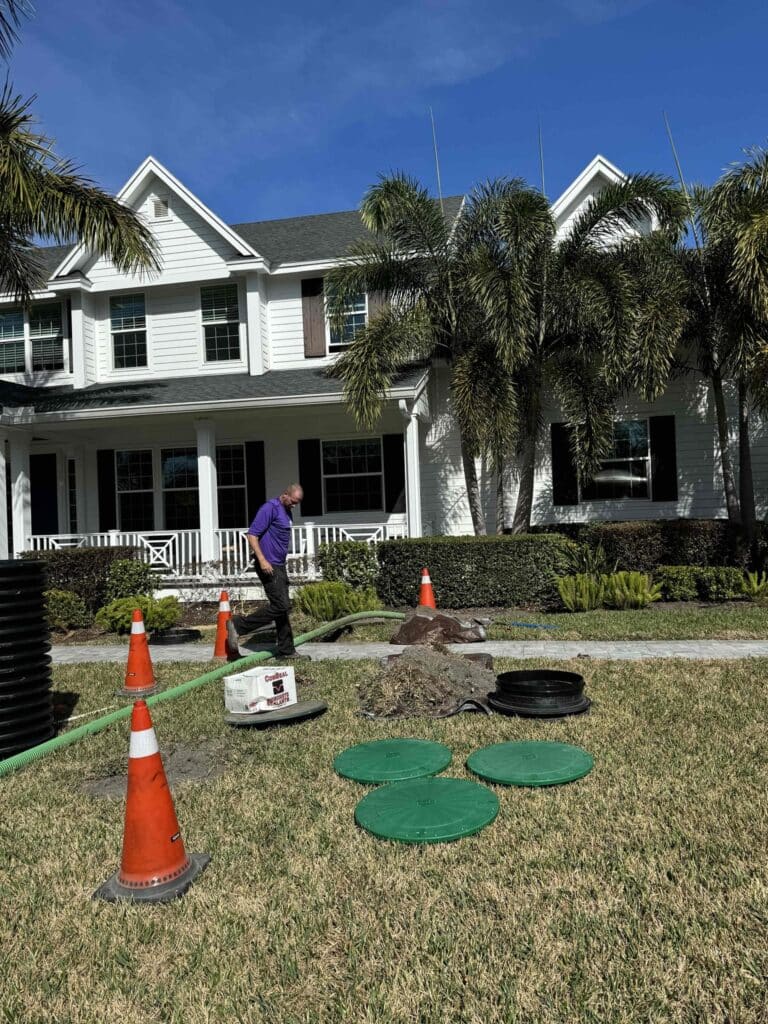
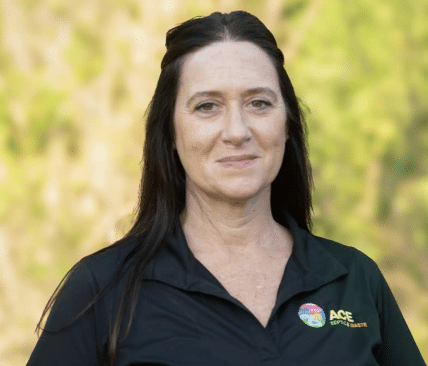
“ACE Septic and Waste does not decide if a system passes or fails. Our role as a septic provider is to follow and enforce the guidelines and standards established by the State of Florida Department of Health, specifically Chapter 64E-6 of the Florida Administrative Code, which outlines the standards for onsite sewage treatment and disposal systems.”
– Nan Mallory | Director of Operations
Our adherence to the Florida Department of Health standards and rigorous inspection protocols helps homeowners avoid early failures, costly repairs, and non-compliance risks.
By thoroughly assessing elements such as the system’s installation depth, soil compatibility, and proper pipe connections, ACE identifies issues that may otherwise compromise your system’s performance and lifespan and provide homeowners with complete information so they can take the right course of action.
Septic tanks often fail due to age, brittleness, and structural weaknesses, such as cracks in the walls or visible concrete aggregate, which indicate degradation. They can also fail due to environmental issues such as groundwater pressure. Excessive water use, which results in too much wastewater for your septic tank to handle, is another common problem, leading to overloading the system, causing leaks, or, in severe cases, complete collapse.
Dosing Tanks face similar problems, with signs of brittleness and structural damage. Additionally, functional failures are common in dosing tanks, like missing high-water alarms, malfunctioning pumps, and non-functional float switches, all of which prevent the system from properly managing wastewater levels.
The drain field, which is responsible for filtering and absorbing wastewater, can fail if it can’t adequately accept fluids, leading to backflow into the tank or standing water.
Signs of drain field failure often include blowouts, dead grass patches, or areas of soft, spongy grass that show excessive nutrient build-up.
Each of these issues compromises the septic system’s performance and often leads to inspection failure. Florida’s environmental conditions, such as high water tables, sandy soils, and heavy rains, only increase these risks.

ACE Septic finds that neglecting regular maintenance—like pump-outs and inspections—is responsible for most severe system failures, while natural wear accounts for the rest. Septic system failures often arise more from improper maintenance than from natural wear and tear. In fact, neglect accounts for around 65-70% of failures, with the remaining 30-35% generally attributed to natural aging, local soil conditions, or other environmental factors.
How homeowners use and maintain their septic system will greatly impact its effectiveness at dispersing wastewater and how long your system will maintain efficiency.
For example, excessive water usage can overwhelm the system, while skipping regular pump-outs allows solids to build up, leading to clogs and potential failure.
Improper waste disposal—like flushing wipes or chemicals—disrupts the bacterial balance needed to break down waste. At the same time, landscaping choices, such as planting trees with deep roots near the drain field, can cause physical damage.
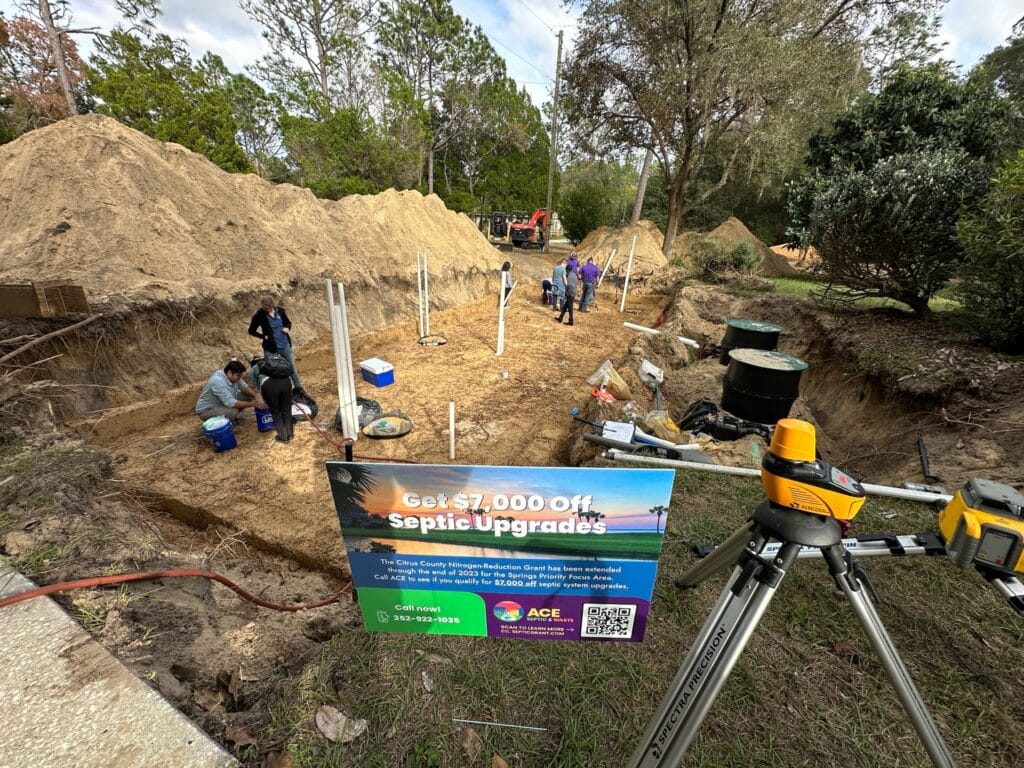
ACE Septic educates homeowners on best practices, helping them avoid these common mistakes and extend the life of their system. For more information on maintaining a healthy septic system, check out our guide to proper usage and septic maintenance routines.
New 2024 regulations to reduce nitrogen have introduced additional requirements to address environmental concerns, particularly nitrogen pollution in areas near vulnerable water bodies. Here’s what homeowners and potential buyers need to know.
Florida requires septic systems to undergo inspection and certification when they’re first installed and recertification at regular intervals. These inspections ensure that the system meets state codes, has no leaks or structural issues, and isn’t contributing to groundwater contamination.
Recertification for real estate inspections is especially important, where an up-to-date inspection report can give buyers confidence in the system’s reliability.
In environmentally sensitive regions, septic systems will need to include nitrogen-reducing technology to help protect water quality. This mandate aims to reduce nitrogen pollution, which can harm marine life and increase the risk of algae blooms.
ACE has participated in various state-sanctioned nitrogen reduction initiatives. Click below to watch our latest documentary that shows one of our many success stories.
In areas where municipal sewer connections are available, new legislation from counties like Hillsborough, Citrus, and Nassau will require homeowners to connect their septic system to the local sewer network where possible.
This change helps reduce the number of septic systems in areas where sewer infrastructure can handle waste more efficiently.
For homeowners needing to upgrade their septic systems to meet these new standards, the Florida Department of Environmental Protection (DEP) offers financial assistance programs, such as Citrus County’s Septic Upgrade Incentive Program.
These funds help offset the cost of installing nitrogen-reducing systems or connecting to municipal sewers in areas where it’s mandated. DEP’s support programs aim to ease the financial burden for homeowners, ensuring compliance without placing undue stress on household budgets.
Homeowners interested in applying for these programs can contact the DEP or check their website for details on eligibility and application requirements.
By staying informed about these changes and taking advantage of available resources, Florida homeowners can ensure their septic systems comply with evolving environmental standards while protecting both their property and the surrounding ecosystem.
ACE’s inspection process adheres to and often exceeds Florida’s standards. While some companies may rely on surface checks, ACE takes a comprehensive look at each part of the system—from tanks’ structural integrity to drainage fields’ and alarm systems’ performance.
ACE’s technicians are trained to spot even minor weaknesses, ensuring we can provide buyers and sellers with a complete and accurate system health assessment.
ACE’s inspection process adheres to and often exceeds Florida’s standards. While some companies may rely on surface checks, ACE takes a comprehensive look at each part of the system—from tanks’ structural integrity to drainage fields’ and alarm systems’ performance.
ACE’s technicians are trained to spot even minor weaknesses, ensuring we can provide buyers and sellers with a complete and accurate system health assessment.
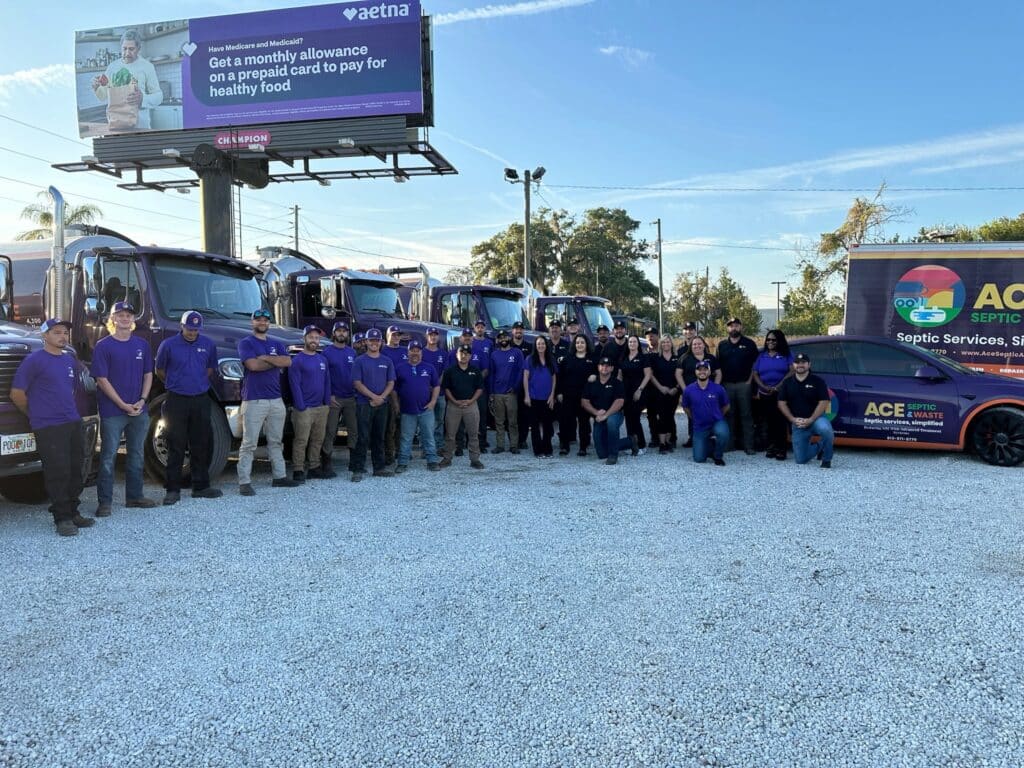
ACE Septic & Waste is the gold standard for providing Florida homeowners, buyers, and sellers with reliable, in-depth septic inspections that meet all state regulatory standards.
By using a thorough, step-by-step approach, ACE ensures that every inspection covers essential system components and potential weak points, giving clients an honest and transparent assessment of their septic system’s health.
Whether you’re preparing to buy, sell, or simply need a standard residential inspection, scheduling a septic inspection with ACE can help you avoid costly repairs, protect property value, and meet Florida’s environmental standards.
Click here to set up an inspection with our expert team and gain confidence in the long-term reliability of your septic system.
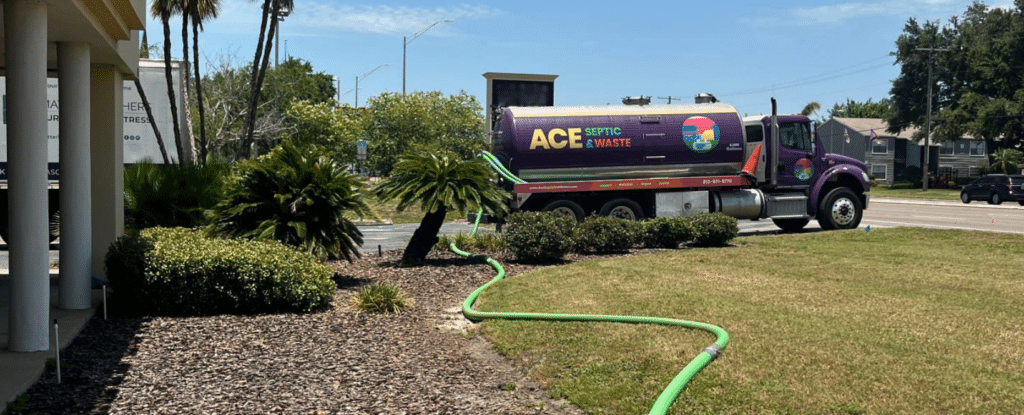
Quick Links: